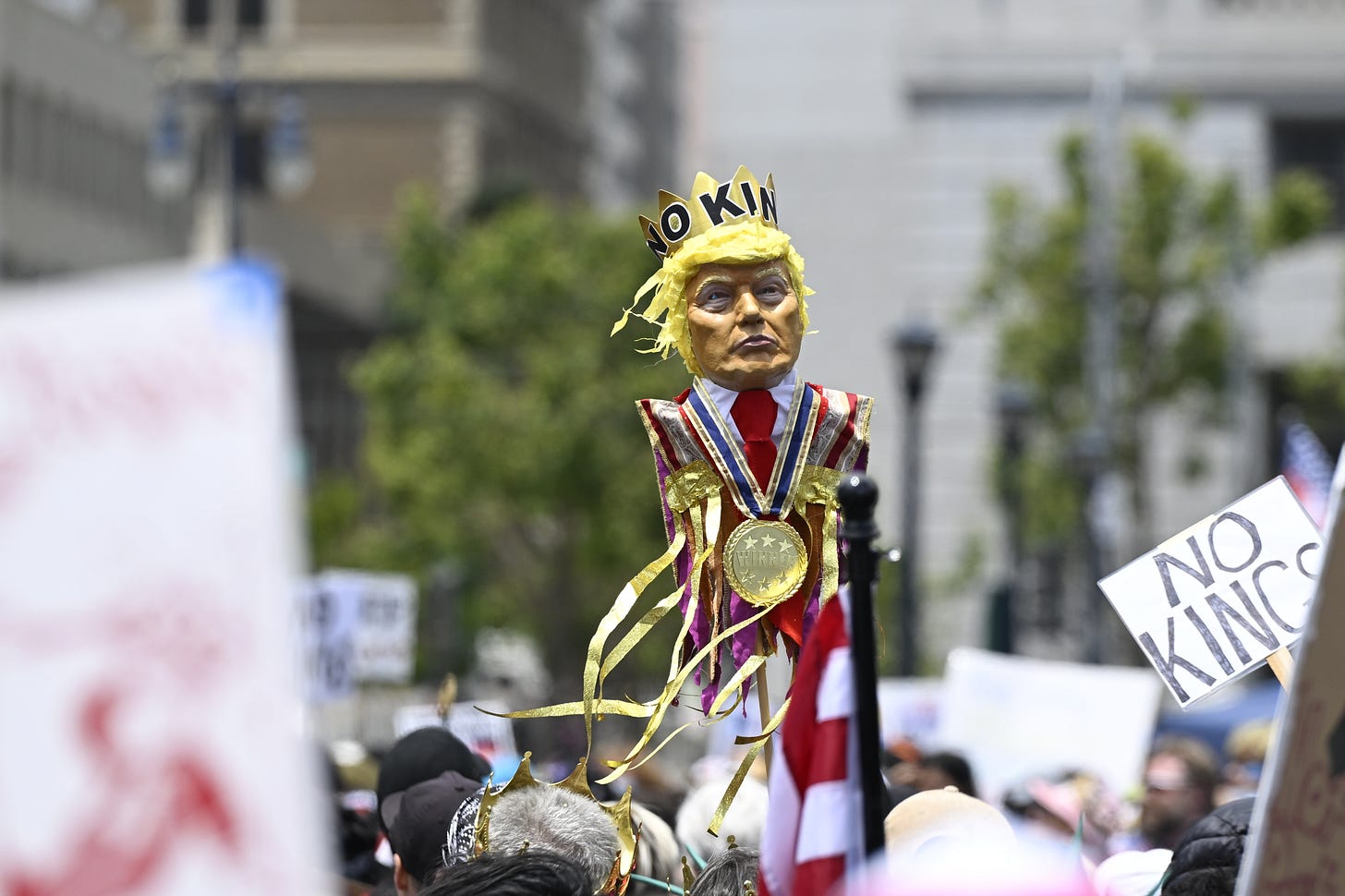The fear of kings
The ‘No Kings’ protesters see tyranny ahead, but perhaps they are bringing it on.
Let me tell you a political story. A leader sweeps into power on a populist mandate. He is accused of pandering to the worst instincts of the people, and the legitimacy of his rule is questioned. Influential groups among the elite class mobilise to see him toppled, galvanised by their frustration that the public simply don’t understand what is best for them. Above all, he is accused of behaving like a monarch.
This is the story of Donald Trump and the ‘No Kings’ protests that have been sweeping throughout America this weekend. But it is also the story of Julius Caesar, the self-appointed ‘perpetual dictator’ of Rome who ruled from 49 BC until he was assassinated in 44 BC. At the risk of labouring a historical comparison that has obvious limitations, it is difficult not to notice the parallels.
Perhaps the analogy is worth exploring a little further. The Roman Republic was defined by its opposition to monarchy. The seven kings of early Rome (probably a mythic fiction) seeded a cautionary precedent in the collective psyche. Just as the Founding Fathers of America had framed their constitution as a repudiation of monarchical governance, those Roman aristocrats who had supposedly expelled Tarquin the Proud – Rome’s final king – had crafted a republican system that would act as a barrier to any one man seeking absolute power. The word rex became taboo.
In Book II of his History of Rome, Livy recounts Brutus’s words at the expulsion of Tarquin and the foundation of the republic. ‘First of all he bound over the people, whilst still enraptured with their newly-acquired liberty, by an oath that they would suffer no one to be king in Rome’. Now compare this to Thomas Jefferson’s direct attack on King George III in the Declaration of Independence: ‘A Prince, whose character is thus marked by every act which may define a Tyrant, is unfit to be the ruler of a free people.’ We might summarise the sentiments of both Livy and Jefferson as ‘No Kings’.
The fear that Julius Caesar was hankering after kingship drove the conspirators to take bloody action on the Ides of March. Plutarch tells us that ‘the most open and deadly hatred towards him was produced by his passion for the royal power’ and that many of Caesar’s supporters even hailed him as king. For his part, Caesar had restyled himself as a monarch in all but name, donning the purple robe and laurel wreath, making his birthday a public holiday, minting coins with his image, and even sitting on a golden throne. He wasn’t subtle.
— To continue reading this article, please consider becoming a paid subscriber —



